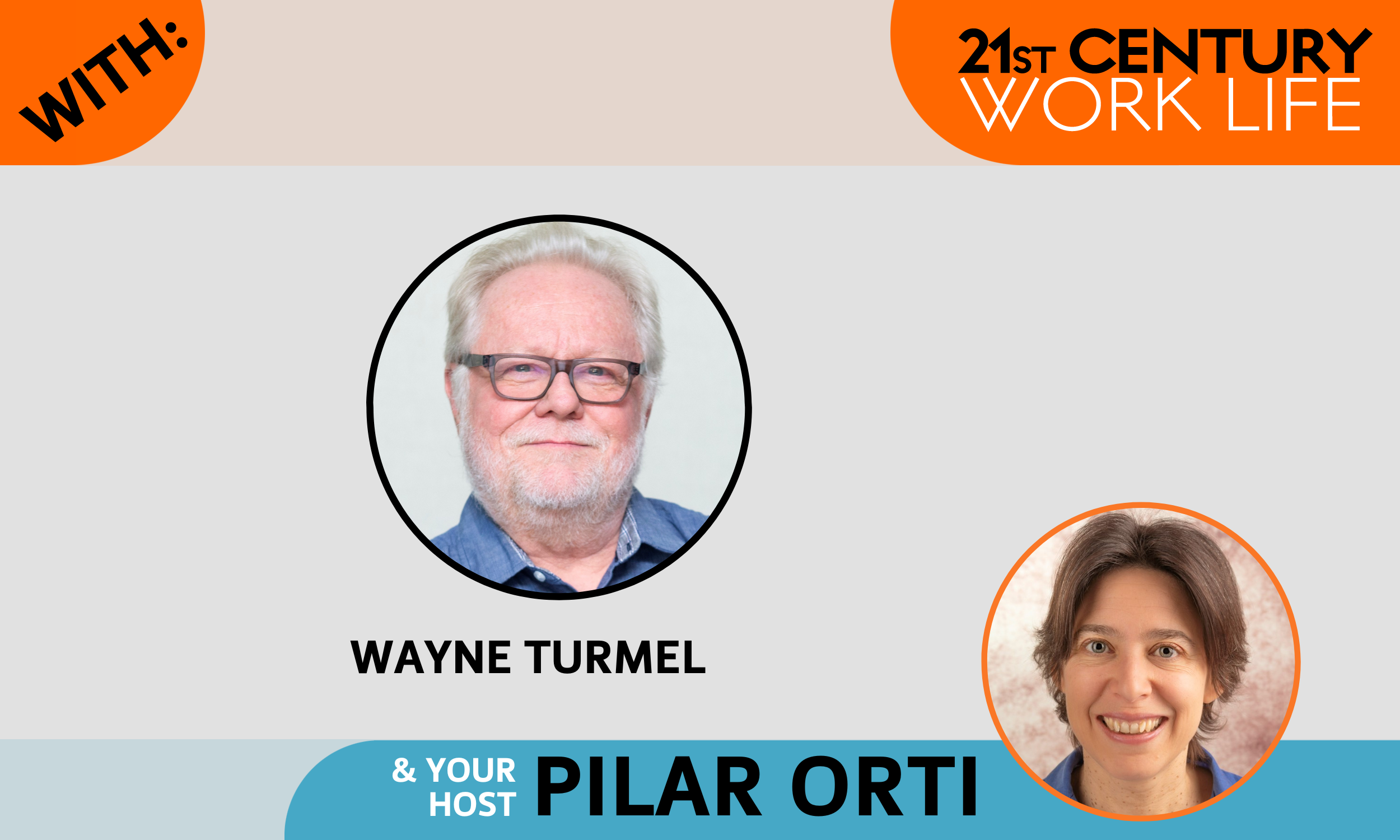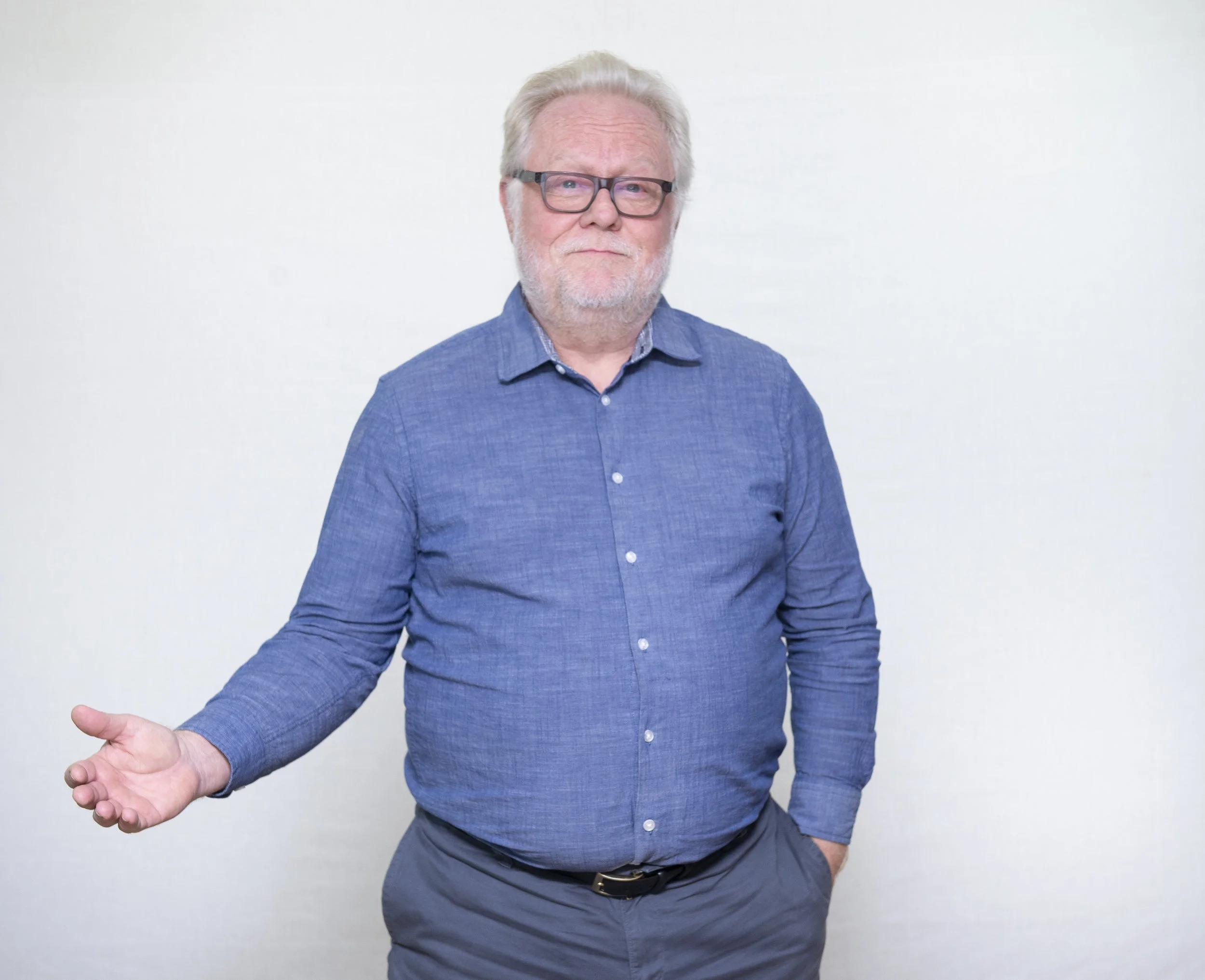WLP328 The Complexity of Hybrid Culture
In today’s episode, Wayne Turmel discusses the evolution of remote work culture, and how organisations are adapting to new work setups, like hybrid models, and the need to intentionally shape their cultures. He delves into the meaning of 'culture,' the difference between macro- and team-cultures, and the challenges of maintaining organizational culture in hybrid setups.
Wayne has been studying remote work for almost 20 years. He now works within the Kevin Eikenbery group helping leaders in organisations. The word “remote” is becoming redundant as working with remote workers is now part of most knowledge workers.
Wayne and Kevin have co-written three books: Long-Distance Leader and Long-Distance Team Mate (how to stay engaged and effective when we don’t share the space with our team) which are focused on the individual, and the new book, Long-Distance Team - probably the last book in the series, written to help create the environment where long-distance leaders and team mates can thrive.
The book has been released just as organisations are thinking about how their culture might change with the new location set-ups, like hybrid. Now is the time to think about what the workplace of the future will look and feel like, so that we can be intentional about the culture we create.
Now, what do we mean by “culture”?
If culture is “how we do it here”, what do we mean by “it”? How does work get done, how do people interact with each other, how do they get promoted, what are the things that make it a good place to work?
To complicate things, there is the macro-culture of the organisation and the team-culture, and these might be complimentary or different. When we work co-located, you are surrounded by “culture”, the moment you enter a building, and sometimes we’re not aware of it.
Many organisation feel like they preserved their culture well when everyone was suddenly remote. But as we move to more hybrid set-ups, it’s more difficult to preserve the original culture. There will always be a culture and we might be able to preserve the best things about your culture, but you need to be intentional about it.
For example, asking what’s the culture that we had? What did we like about it? And what’s the culture like at the moment, which probably emerged unintentionally over the last couple of years? And what’s the culture we’d like to move towards, where we can keep and improve what is working and do other things differently?
Even though we’ve been used to navigating “culture” through visual cues and other social interactions, people still think of themselves of working for their organisation even when they’re not in the office, because work is what you do and who you do it with, rather than where you go to. Physical space has always been a part of culture, but there’s much more to it of course.
Wayne Turmel
21.00mins
When we start looking at intentionally building up our culture, it’s easier to start at the team level. If teams had a positive culture before the pandemic, they’ve been able to maintain that. At the same time, many people have joined these teams over the last three years and need to be integrated.
This is specially tricky when we think about people who experienced their first jobs working from home, who now need to learn how to work sharing office spaces. Does this give us a chance to question past norms, that others haven’t adapted to naturally?
Ironically, where we are now, culture needs to be created intentionally both online AND in the office. A lot of assumptions that senior leaders have made about what people want from the workplace haven’t been true; plus some people might have been keen to return but now realise that they didn’t enjoy being back in the office as much as they remembered… “Pilot before policy” would be a good way of looking at the new work set ups…
In order to get our heads around culture, Wayne and Kevin have framed it under Communication (how do we talk to each other), Collaboration (what’s the work that needs to be done and how do we work together to make it happen) and Cohesion (how do we form the bonds and connections to help this be the kind of place we want to be in and can attract people).
34.45mins
The framework can help to have a conversation about the culture we want to create - a conversation that’s long overdue and NOW is the best time to have it, especially as many people have changed not just the way in which they work, but also the way in which we live. People think differently about what they want their work to look like, and companies are figuring out what the necessary office space is for the company to continue operating to its full potential.
While most organisations seem to be going “hybrid”, nobody really knows what it means. It requires a new way of working, not just mixing up elements of office-based and online work. Hybrid work is not just about where people are located, but how time is used eg how much overlap time team members need.
““Time is the new complicating factor in determining whether “hybrid work” is going to work.” ”
Whether work needs to be done synchronously or asynchronously is going to be a core part of re-designing the culture. There is an opportunity here to improve things!
To complicate matters further, there’s the question of the amount of social interaction that people get at work. Plus, some organisations have a hybrid set up, and they’re distributed globally. Different geographical cultures are having different responses to the “going back to the office” conversations, for example how you progress in your career, something Wayne has seen unfold in a real case scenario.
And this of course might also happen in the culture of some industries that traditionally have relied in people being colocated, but now we know that there is a choice in following “the way in which things are”.
Wayne and Marisa Eikenberry host the Long Distance Work Life podcast. Marisa is a digital native, so her and Wayne can discuss aspects of work from different points of view; and Wayne also gets to interview people about working remotely as a leaders, and as an individual.
Wayne also writes fiction! This is his artistic release, but he rarely talks about his werewolf detective novels on business shows. Find out more about Wayne the multi artist over at wayneturmel.com and @wturmel on twitter
And check out his work as trainer over at kevineikenberry.com
Feel free to check out Wayne interviewing Pilar on Long Distance Work Life.
If you like the podcast, you'll love our monthly round-up of inspirational content and ideas:
(AND right now you’ll get our brilliant new guide to leading through visible teamwork when you subscribe!)


